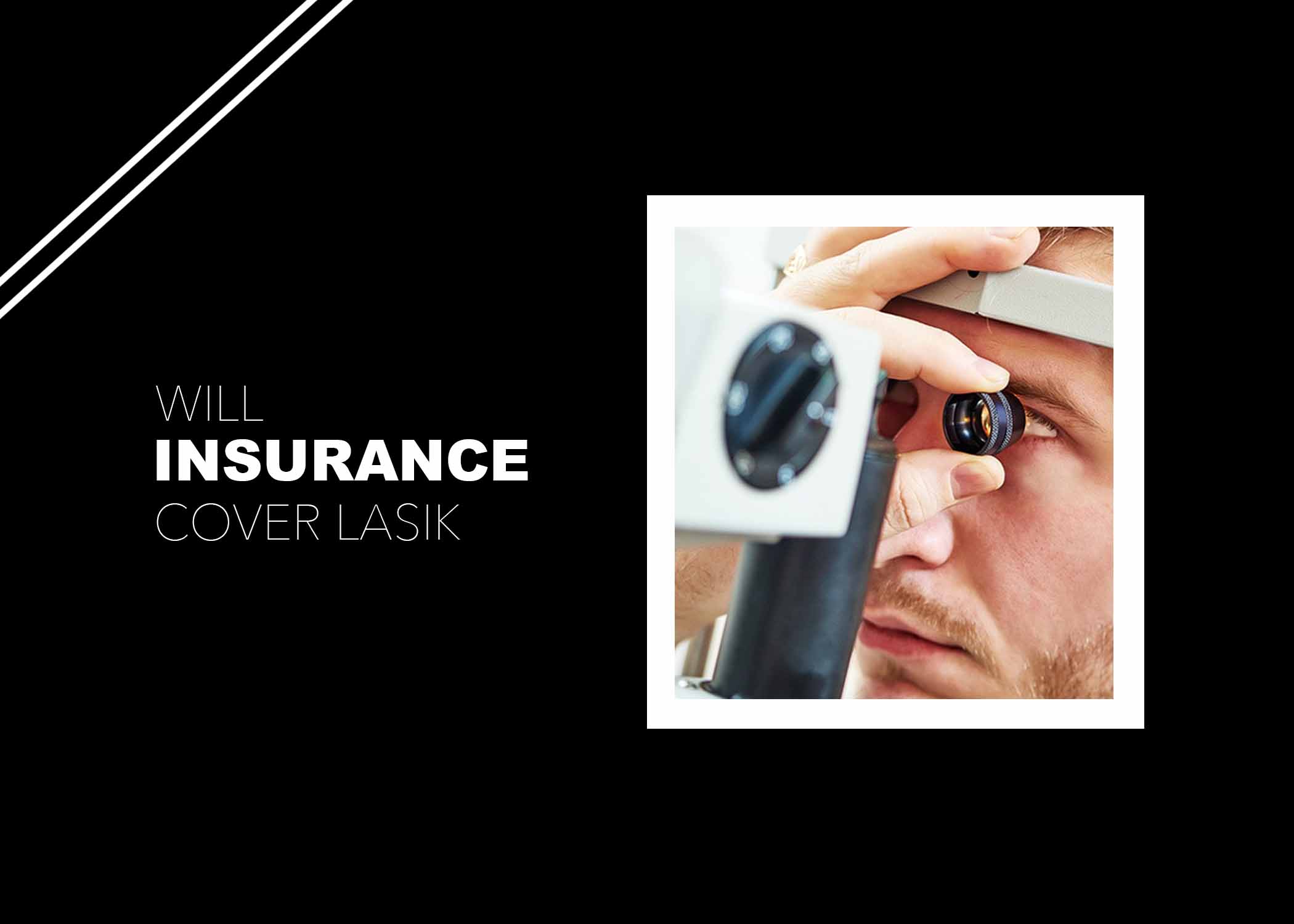Will Insurance Cover LASIK? Are you thinking about undergoing LASIK surgery but unsure if your insurance will cover it? It’s a common concern, and we’re here to provide you with all the information you need.
LASIK eye surgery has gained immense popularity, with over 40 million successful procedures performed worldwide since its FDA approval. However, when it comes to insurance coverage, there are several factors to consider. With that in mind, let’s dive in, so ensure to read thoroughly to the end.

What is LASIK Eye Surgery?
LASIK, an acronym for laser-assisted in situ keratomileusis, is a cutting-edge surgical procedure meticulously designed to rectify prevalent vision impairments like nearsightedness, farsightedness, and astigmatism.
Using advanced laser technology, LASIK reshapes the cornea, potentially obviating the necessity for corrective eyewear such as glasses or contact lenses.
Renowned for its expeditious and relatively pain-free nature, LASIK boasts a high degree of patient satisfaction, offering individuals a newfound clarity of vision and enhanced quality of life.
Insurance Coverage for LASIK
Regrettably, LASIK is often seen as an optional surgery and isn’t usually included in many insurance plans. Nevertheless, there are some instances where you might find exceptions to this rule.
ertain vision insurance companies might provide perks or price cuts for LASIK procedures. It’s crucial to reach out to your insurance provider directly to see if you’re eligible for any type of coverage or assistance with LASIK expenses.
Read Also: How to Buy Health Insurance – How do I Enrol in a Health Insurance…
Medicare and LASIK Surgery
Original Medicare, which consists of Parts A and B, generally excludes coverage for LASIK surgery, considering it elective. Nonetheless, there are exceptions to this rule.
Some Medicare Advantage plans may incorporate extra vision benefits, providing an opportunity for coverage. Therefore, it’s advisable to delve into your options with your provider to determine if any vision-related benefits are available under your plan.
Tips for Saving on LASIK
If you’re feeling worried about the expenses associated with LASIK surgery, there are numerous strategies you can explore to potentially reduce costs:
- Reach out to your insurance provider and inquire about any available benefits or discounts specifically tailored for LASIK procedures. Some insurance companies may offer coverage or reduced rates for certain vision correction surgeries.
- Discuss with your surgeon regarding financing options. Many LASIK practices provide flexible payment plans to assist patients in managing the cost of the procedure. These plans allow you to spread out the payments over time, making LASIK more financially manageable.
- Consider utilizing funds from Flexible Spending Arrangements (FSAs) or Health Savings Accounts (HSAs) if you have them. These accounts allow you to set aside pre-tax money for medical expenses, including LASIK surgery. By utilizing funds from these accounts, you can effectively reduce the out-of-pocket expenses associated with the procedure.
Conclusion
Truth is, insurance coverage for LASIK is usually limited, exploring alternative financing options and discussing potential benefits with your insurance provider can help. Share your thoughts in the comments and spread the word by sharing this post on social media. Your input can make a difference for others considering LASIK.
Frequently Asked Questions
Will my insurance cover LASIK?
It depends on your insurance plan. Some insurance plans cover LASIK, but many do not. You should check with your insurance company to see if it’s covered.
How do I know if my insurance covers LASIK?
You can call your insurance company and ask them directly. They can tell you if LASIK is included in your plan or if there are any conditions or requirements you need to meet.
Why do some insurance plans cover LASIK and others don’t?
Insurance plans vary a lot. Some may consider LASIK as an elective or cosmetic procedure, while others might see it as a medical necessity. It depends on how your insurance company views it.
What if my insurance doesn’t cover LASIK?
If your insurance doesn’t cover LASIK, you might have to pay for it out of pocket. Some LASIK providers offer payment plans or financing options to help make it more affordable.
Are there any situations where insurance is more likely to cover LASIK?
Sometimes, insurance companies may cover LASIK if it’s deemed medically necessary. For example, if you have a condition like severe nearsightedness or astigmatism that can’t be corrected with glasses or contacts, insurance might be more likely to cover it.
Checkout: Insurance for Self-employed – Types of Insurance for the Self-employed
Is it worth trying to get insurance to cover LASIK?
It depends on your situation. LASIK can be expensive, so if your insurance covers it, it could save you a lot of money. However, if your insurance doesn’t cover it, you’ll have to decide if the benefits of LASIK outweigh the cost.
What factors might affect LASIK’s insurance coverage?
Insurance coverage for LASIK can be influenced by various factors, such as your specific insurance plan, the reason for needing LASIK (such as medical necessity), and any pre-existing conditions you may have.
Can I appeal if my insurance denies coverage for LASIK?
Yes, you can appeal a decision if your insurance denies coverage for LASIK. You would need to follow the appeals process outlined by your insurance company, which typically involves providing additional information or documentation to support your case.
Does Medicaid or Medicare cover LASIK?
Generally, Medicaid and Medicare do not cover LASIK because they typically only cover procedures considered medically necessary. However, there may be exceptions in certain cases, so it’s best to check with your specific Medicaid or Medicare plan.
Are there alternative options if insurance doesn’t cover LASIK?
Yes, if LASIK isn’t covered by your insurance, there are alternative vision correction options such as glasses, contact lenses, or other types of refractive surgeries like PRK or SMILE. You can discuss these options with your eye doctor to find the best solution for your vision needs and budget.



